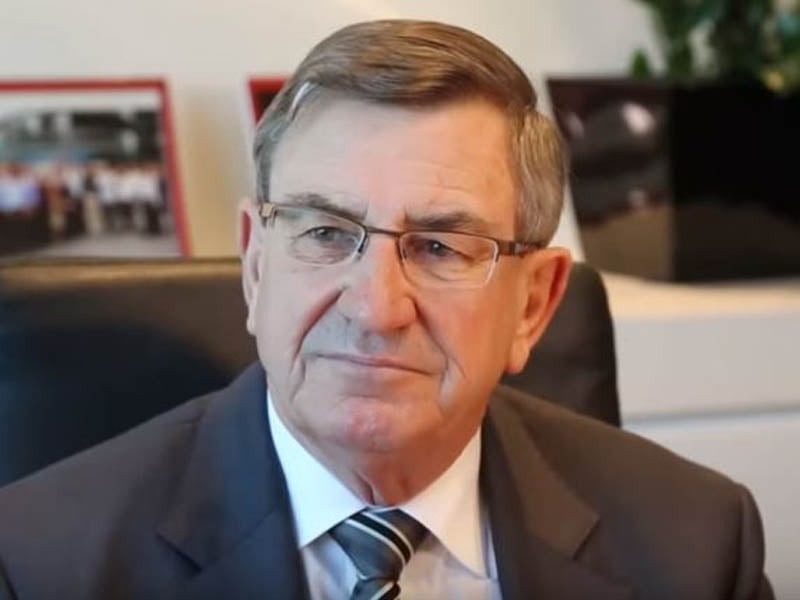Huawei Australia has been blacklisted by the US government, just weeks after the company drew a line through a $60 million research and development investment in Victoria.
The local subsidiary of the China-based network giant was added to the US government’s list of entities that American companies will soon be banned from doing business with on Tuesday.
It follows the Australian federal government banning Huawei late last year from participating in the build of the local 5G network due to national security concerns.

Earlier this month, Huawei wrote to the Victorian government earlier this month informing it that the $60 million Huawei Operation Support System R&D Centre in Burwood would be shut down, with 15 “highly-specialised” jobs at risk.
“Due to the current negative environment and the uncertainty surrounding recent federal regulatory changes, the business no longer feels confident investing further in the Australian R&D operations,” Huawei said in the letter, obtained by InnovationAus.com.
“Huawei Australia remains committed to the local market and other parts of the business will not be affected by this decision by the global R&D team,” it said.
Late last year the federal government banned Huawei, along with fellow Chinese tech firm ZTE, from providing equipment to Australian telcos for the build of the local 5G network on the basis of national security concerns.
This week Huawei Australia was also added to the US government’s list of entities that American companies are banned from trading with.
Huawei’s corporate entity was added to the list in May, and the Australian subsidiary was included on Tuesday night, along with 45 other global affiliates.
The US government did, however, extend a delay to the banned list coming into effect, with a further 90 days given so consumers could have the “necessary time to transition away from Huawei equipment, given the persistent national security and foreign policy threat”.
“As we continue to urge consumers to transition away from Huawei’s products, we recognise that more time is necessary to prevent any disruption,” US Secretary of Commerce Wilbur Ross said in a statement.
“Simultaneously, we are constantly working at the Department to ensure that any exports to Huawei and its affiliates do not violate the terms of the Entity Listing or Temporary General Licence,” he said.
The ban will now come into effect in November.
Huawei quickly hit back at its Australian subsidiary’s inclusion on the list, with a spokesperson labelling it “unjust”.
“It’s clear that this decision, made at this particular time, is politically motivated and has nothing to do with national security. These actions violate the basic principles of free market competition. They are in no one’s interests, including US companies,” the spokesperson said.
Huawei Australia chairman John Lord, a former Rear Admiral in the Australian Navy, also criticised the US government’s move, but said it would not have “any great impact” on the company.
“Most of our supplies come from the headquarters of the company or from other company outlets outside of the United States and all of our projects that we have running at the moment,” Mr Lord told ABC Radio National.
“Australia is the only [country] that has totally banned Huawei in 5G. But then to pick up the rest of the Huawei entities and add them in without any allegation of doing anything wrong, I think just shows that this is really about the trade dispute between China and the US, and not a matter of security as they were saying last year.”
Mr Lord said it is an example of “international politics at play”.
Huawei was originally added to the US Entity List in May this year after the government ruled that the company is “engaged in activities that are contrary to US national security or foreign policy interests”.
Huawei Australia has not abandoned local research entirely though, with an app developed by the company to help deaf children being hailed at a National Press Club address by Deaf Australia chief executive Kyle Miers.
In the address, which was sponsored by Huawei Australia, Mr Miers said the StorySign app, which translates texts into sign language, has helped many deaf Australians, and called on additional funding for the development of similar services.
“With the StorySign app now compatible with Auslan, Huawei is making digital tools accessible to Australian children and we are investing in local research to support a wider conversation about ensuring equality in every aspect of their lives for people in the deaf community,” Huawei Australia corporate relations and programs manager Lisa Connors said.
Do you know more? Contact James Riley via Email.

